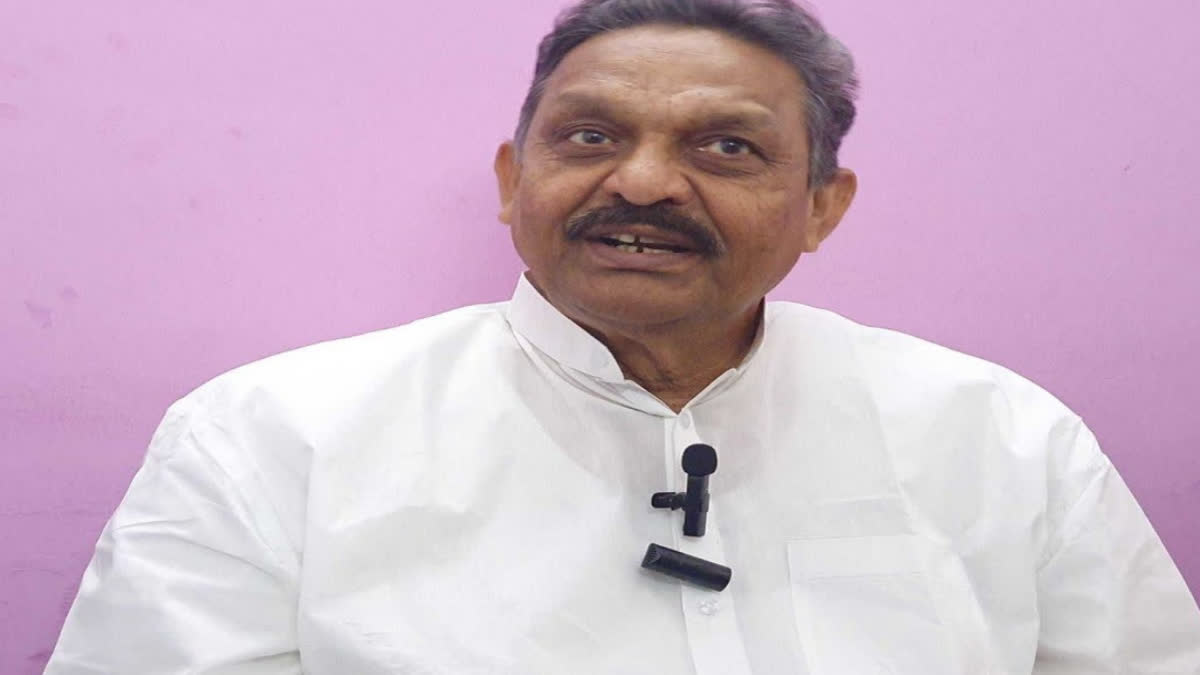New Delhi:Supreme Court Judge Justice Dipankar Datta on Thursday said that no court should feel chained by misplaced sympathy towards assumed ramifications on the constituency of the parliamentarian/legislator, who has been convicted while disagreeing with a majority judgment, which partially allowed the appeal by Bahujan Samaj Party parliamentarian Afzal Ansari against his conviction in a 2007 Gangster Act case. Justice Datta emphasised allowing a convicted parliamentarian to attend parliamentary proceedings could not only be derogatory to the dignity of Parliament, but also derogatory to the good sense and wisdom of the people, who elected such parliamentarian
A bench comprising justices Surya Kant, Dipankar Datta and Ujjal Bhuyan, partially allowed Ansari’s appeal. Justices Kant and Bhuyan ruled in favour of Ansari’s plea, however, Justice Datta said that Ansari’s appeal should not succeed. The apex court set a deadline of June 30, 2024, for the Allahabad High Court to decide on his plea against the conviction.
Justice Datta, in his 56-page judgment, said: “As the court of last resort, it is the bounden duty of this court to uphold the rule of law, which entails equality before the law and equal subjection of all classes to the ordinary law of the land. No court, much less this court, should feel chained by misplaced sympathy towards assumed or imagined ramifications on the constituency of the parliamentarian/legislator, who has been convicted”.
Justice Datta said, “Allowing a convicted parliamentarian to attend parliamentary proceedings could not only be derogatory to the dignity of Parliament but also derogatory to the good sense and wisdom of the people, who elected such parliamentarian”. He said it would not be out of place to quote Dwight D. Eisenhower, the 34th US President, perhaps in times when democracy faced its toughest test. He said: “The clearest way to show what the rule of law means to us in everyday life is to recall what has happened when there is no rule of law”.
Justice Datta said the adoption of the course charted by senior advocate AM Singhvi, who represented Afzal, that a mere disqualification (without anything more being on record) should be considered as amounting to “irreversible consequences”, would inevitably result in this court sailing in an unnavigable sea of generalisation.
Justice Datta emphasised that while recognising the importance of the electorate's representation, it is necessary to maintain a balance between this right and the enforcement of legal accountability within the democratic framework.
He noted that indeed, the courts have acknowledged that legislators bear a special duty towards their constituents, and failure to secure a stay of conviction may lead to the loss of the opportunity to contest elections. “In isolation, this consideration might serve as a compelling reason to grant a stay of conviction. However, when a parliamentarian/legislator seeks a stay of conviction, he shoulders an additional responsibility of demonstrating how his constituents are likely to endure adverse consequences if the conviction is not stayed”, he said.
Justice Datta stressed that a parliamentarian/legislator cannot be allowed to obtain a ‘double advantage’ where he implores the court for a stay of conviction being a parliamentarian/legislator while simultaneously failing to provide full disclosure of consequences regardless of what the reasons are, whether due to inadvertence, negligence, or mistake. “Failing to do the same, the law should be allowed to take its own course”, he said.
